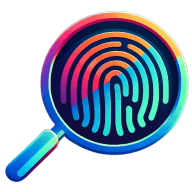What Makes Solving a Challenging Fraud Case Difficult?
Imagine uncovering a complex web of deceit that challenges every notion of security. In this insightful Q&A, fraud professionals share their experiences, highlighting cases that pushed their skills to the limit. The discussion opens with tracing the source of email fraud and concludes with the need to harmonize international fraud cooperation, featuring six key insights in total. Each story reveals the relentless pursuit of truth in the face of evolving fraud tactics.
- Trace the Source of Email Fraud
- Stay Updated with Fraud Detection Methods
- Close Legal Loopholes Proactively
- Advocate for More Investigative Resources
- Gather Robust Evidence for Prosecution
- Harmonize International Fraud Cooperation
Trace the Source of Email Fraud
At Constellation Marketing, we handled a sophisticated email-fraud case where scammers had cloned one of our law firm client's email domains to request wire transfers from their customers, nearly succeeding in stealing $50,000. I worked closely with our cybersecurity team to trace the source, implement stronger email-authentication protocols, and create an emergency-response plan that has since protected our other law firm clients from similar attacks.
Stay Updated with Fraud Detection Methods
Sophisticated techniques employed by fraudsters make detection significantly harder. They often use advanced technology and creative methods to stay ahead of investigators. This cat-and-mouse game demands constant learning and adaptation from those trying to catch them.
The complexity of these techniques can easily confuse even seasoned professionals. It's crucial for authorities to stay updated with the latest methods of fraud detection and prevention.
Close Legal Loopholes Proactively
Fraudsters frequently take advantage of legal loopholes to carry out their schemes. These gaps in the law can allow criminals to operate under the radar, making it difficult to gather enough evidence to prosecute them. Legal systems often struggle to keep pace with the evolving nature of fraud, leaving vulnerabilities that can be exploited.
Overcoming these challenges requires a proactive approach to legal reform. Working diligently to close these loopholes is essential for effective fraud prevention.
Advocate for More Investigative Resources
Limited resources for investigating fraud cases can severely hamper efforts to uncover and stop fraudulent activities. With constrained budgets and manpower, organizations may find it challenging to conduct thorough investigations. This limitation can also delay the time-sensitive process of gathering and analyzing evidence.
Boosting funding and support for investigative teams is vital. It is important to advocate for more resources to ensure thorough and effective fraud investigations.
Gather Robust Evidence for Prosecution
Proving intent in fraud cases can be incredibly difficult, adding complexity to solving such cases. It requires clear evidence that the suspect knowingly committed a deceptive act for personal gain. This level of proof is often hard to obtain, especially when sophisticated deceitful practices are used.
Courts need convincing documentation and witness testimony, which can be challenging to secure. A focus on gathering detailed and robust evidence is necessary for successful prosecution.
Harmonize International Fraud Cooperation
Jurisdictional complexities can obstruct collaboration among different agencies, adding another layer of difficulty to solving fraud cases. These cases often span multiple regions or countries, each with its own legal system and procedures. Coordination between these jurisdictions is challenging and can slow down the investigation process.
Harmonizing international cooperation and legal frameworks is essential. Calling for greater global collaboration can make it easier to tackle cross-border fraud efficiently.


